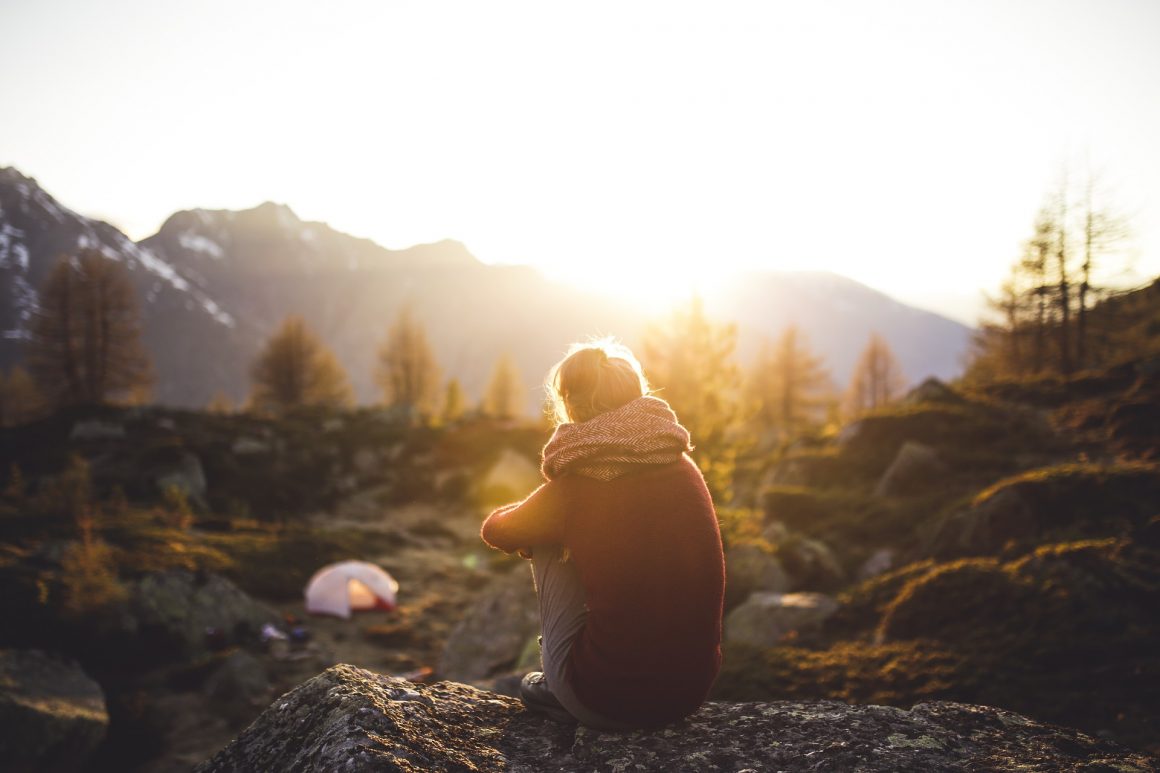
Why minimalist camping is good for the soul
By Calum Robertson, October 23 2018 —
Two lines from Joni Mitchell’s “Woodstock” embody the core motive behind why many embrace the form of getaway known as minimalist camping. “I’m going to camp out on the land / I’m going to try and get my soul free.”
Minimalist camping eschews excessive comforts and instead takes a simpler approach. It emphasizes not just living on the land but also depending on it to provide the means for shelter, food, water and warmth. The idea is not to enter the wilderness and attempt to dominate nature but rather to live in harmony with it and to find your place in the forest.
There are many different techniques for survival camping, resulting from humanity’s storied history of survival. The how-tos of minimalist camping vary based on the camper’s experience, location and personal choice. But why would someone choose to forsake the pleasures of civilization for a weekend battling the elements in the apparent middle of nowhere?
As someone who has embarked on minimalist camping trips, I can attest that these trips feel liberating. They provide a moment to reset and move forward. Too often during life in the city our time becomes occupied with anxiety and stress. A healthy way of escaping, and resetting, can be found in the forest.
I often find my sense of priorities are altered in the wilderness. The outside world of city life and the university grind melts away as my focus turns to constructing a shelter. I am able to witness nature in its authenticity, far from any busy city bustle. My first waking thought is of fire. It is a source of heat, sanity and cooking. The quest to light a suitable blaze becomes my world. Then, basking in the glow, I can properly begin my task of survival and questing for food.
Perspectives vary and change as we walk through life. University can drastically alter and influence these perspectives. We may begin to drift away from looking after ourselves and our internal balance. Minimalist camping resets us, bringing our minds back to a more primal and instinctive state. Papers and projects are no longer life-or-death situations — keeping dry in a rainstorm or finding clean water are, as they were for our ancestors in the centuries before lecture theatres, D2L and deadlines.
While the survivalist lifestyle may not sound appealing for an extended period of time, it certainly does offer a temporary escape and an opportunity to recharge. If ever I find my focus shifting, getting caught up in the minor details, feeling as if the world is closing in on me, I look to the woods. A weekend of puttering about, sampling stream water and eating berries while watching the sunset over the mountains works wonders on the human mind and soul.
Joni Mitchell speaks truth — depending on the land and becoming a part of the thriving ecosystem all around you does indeed set your soul free.
Safety concerns can be lessened by planning ahead. Plan where you’ll camp and how you’ll obtain water. Carry emergency food rations, as well as base food to supplement your wild diet.
By setting your soul free, I do not mean shuffling off the mortal coil whilst in the great outdoors. Always plan ahead. Once I have my plan, I find I can relax and fully commit to the trip, knowing I have a backup in case events start heading south. The daily toil shifts dramatically, creating a simple, idyllic headspace that I often dwell in for weeks afterwards. My school days seem less stressful and life less daunting when I return from excursions to the woods.
If you find yourself wishing for escape, a reset or a fresh perspective, I recommend heading out to the wilderness. Bring the bare essentials and let nature comfort and provide the rest for you.
